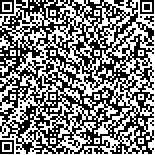| 引用本文: |
-
罗彬,温金明,吴永东,陈洁.可编辑区块链的研究现状与挑战[J].信息安全学报,2023,8(4):62-84 [点击复制]
- LUO Bin,WEN Jinming,WU Yongdong,CHEN Jie.State of the Art and Challenges of Redactable Blockchain[J].Journal of Cyber Security,2023,8(4):62-84 [点击复制]
|
|
| |
|
|
| 本文已被:浏览 10156次 下载 6702次 |

码上扫一扫! |
| 可编辑区块链的研究现状与挑战 |
|
罗彬1, 温金明1,2, 吴永东1, 陈洁3
|
|
|
| (1.暨南大学信息科学技术学院 广州 中国 510632;2.密码科学技术国家重点实验室 北京 中国 100878;3.华东师范大学软件工程学院 上海 中国 200062) |
|
| 摘要: |
| 区块链是一种去中心化和不可篡改的数据库,不仅能有效解决需要第三方介入所引发的信任问题,还能保证应用执行过程公平公正。然而,不可篡改性限制了区块链的许多应用。例如,不同机构需要删除区块链上存储的非法数据或对旧数据进行编辑。因此,如何设计一种可编辑的区块链,对链上数据进行合法编辑是拓展区块链应用的一个重要问题。本文旨在对当前主流的可编辑区块链方案进行系统性调查和分析。首先,总结了这些方案提出的时间脉络和编辑操作的统一流程,针对编辑共识、编辑处理和编辑证明三个重要环节,分别从编辑操作的种类、编辑所属权、编辑涉及的链结构、编辑对象粒度、编辑过程使用的数据结构和编辑共识技术六个不同角度对典型方案进行了细粒度分类。其次,概括了每个方案的核心思想、新颖之处和优缺点,并对方案涉及的密码学原语、常用技术和共识机制等重要组成部分进行了全面回顾,包括变色龙哈希函数、秘密共享、委员会选取、激励惩罚机制、工作量证明、权益证明等。再次,根据身份管理、物联网和外包的不同场景需求,分类讨论了几个利用可编辑区块链技术的最新应用方案,以及区块链可编辑功能所产生的潜在价值。最后,指出了目前方案有待完善或尚未解决的问题,这些问题将提供新的研究方向、拓展区块链的应用场景、加速区块链与更多领域结合、促进区块链技术的发展。 |
| 关键词: 可编辑区块链|变色龙哈希|投票|共识机制 |
| DOI:10.19363/J.cnki.cn10-1380/tn.2023.07.05 |
| 投稿时间:2021-12-24修订日期:2022-02-21 |
| 基金项目:本课题得到国家自然科学基金(No. 11871248、 No. 12271215、 No. 61972156、 No. 61932011), 广东省高等学校珠江学者岗位计划资助项目, 广东省自然科学基金(No. 2021A1515010857), 广东省基础与应用基础研究基金联合基金(No. 2019B1515120010), 广东省重点领域研发项目 (No. 2020B0101090002), 科技部重点研发项目(No. 2020YFB1005600)资助。 |
|
| State of the Art and Challenges of Redactable Blockchain |
|
LUO Bin1, WEN Jinming1,2, WU Yongdong1, CHEN Jie3
|
| (1.College of Information Science and Technology, Jinan University, Guangzhou 510632, China;2.China State Key Laboratory of Cryptology, Beijing 100878, China;3.Software Engineering Institute, East China Normal University, Shanghai 200062, China) |
| Abstract: |
| As a decentralized and immutable database, blockchain cannot only effectively solves the trust problems caused by the need for third-party intervention, but also ensures the fairness and justice of the application execution process. However, immutability limits a multitude of applications of blockchain. For example, different institutions need to delete illegal data stored on the blockchain or edit old data. Therefore, how to design a redactable blockchain and legally redact the data on the blockchain is an important problem for expanding the application of blockchain. This article aims to systematically investigate and analyze the current redactable blockchain schemes. Firstly, the timeline of these schemes and the unified process of redacting operations are summarized. Aiming at the three important segments of redacting consensus, redacting processing, and redacting proof, the typical schemes are classified in fine-grained from six different perspectives: redacting operation type, redacting right ownership, chain structure involved in redacting, redacting object granularity, the data structure used in the redacting process and redacting consensus technology. Secondly, this article summarizes the main idea, novelty, advantages, and disadvantages of each scheme, and comprehensively reviews the important components of these schemes, such as cryptography primitives, common technologies, and consensus mechanisms, including chameleon hash function, secret sharing, committee selection, incentive, and punishment mechanisms, proof of work and proof of stake, etc. Thirdly, according to the different application requirements of identity management, the Internet of Things, and outsourcing, several latest application schemes using redactable blockchain technology and the potential value generated by the redactable function of blockchain are classified and discussed. Finally, we present some open problems that need to be improved or not solved in the current schemes, which may lead to new research directions, expand the application scenarios of blockchain, accelerate the combination of blockchain and more fields, and promote the development of blockchain technology. |
| Key words: redactable blockchain|chameleon hash|e-voting|consensus |
|
|
|
|
|